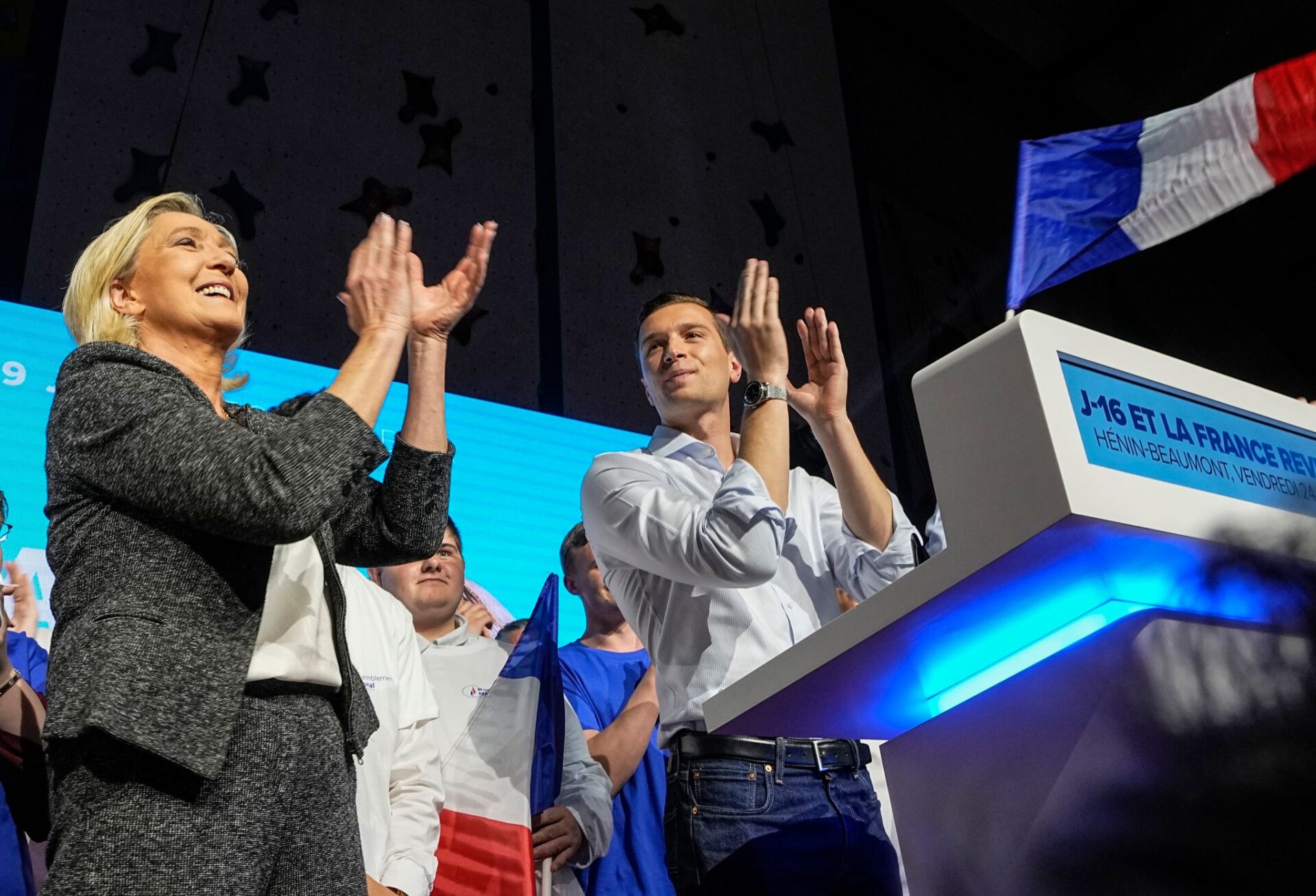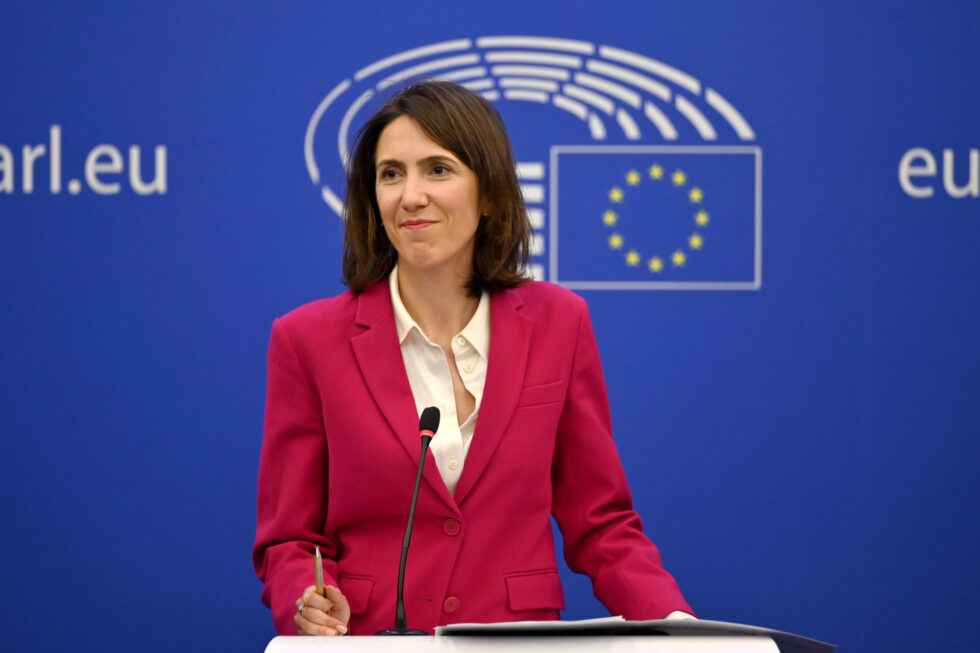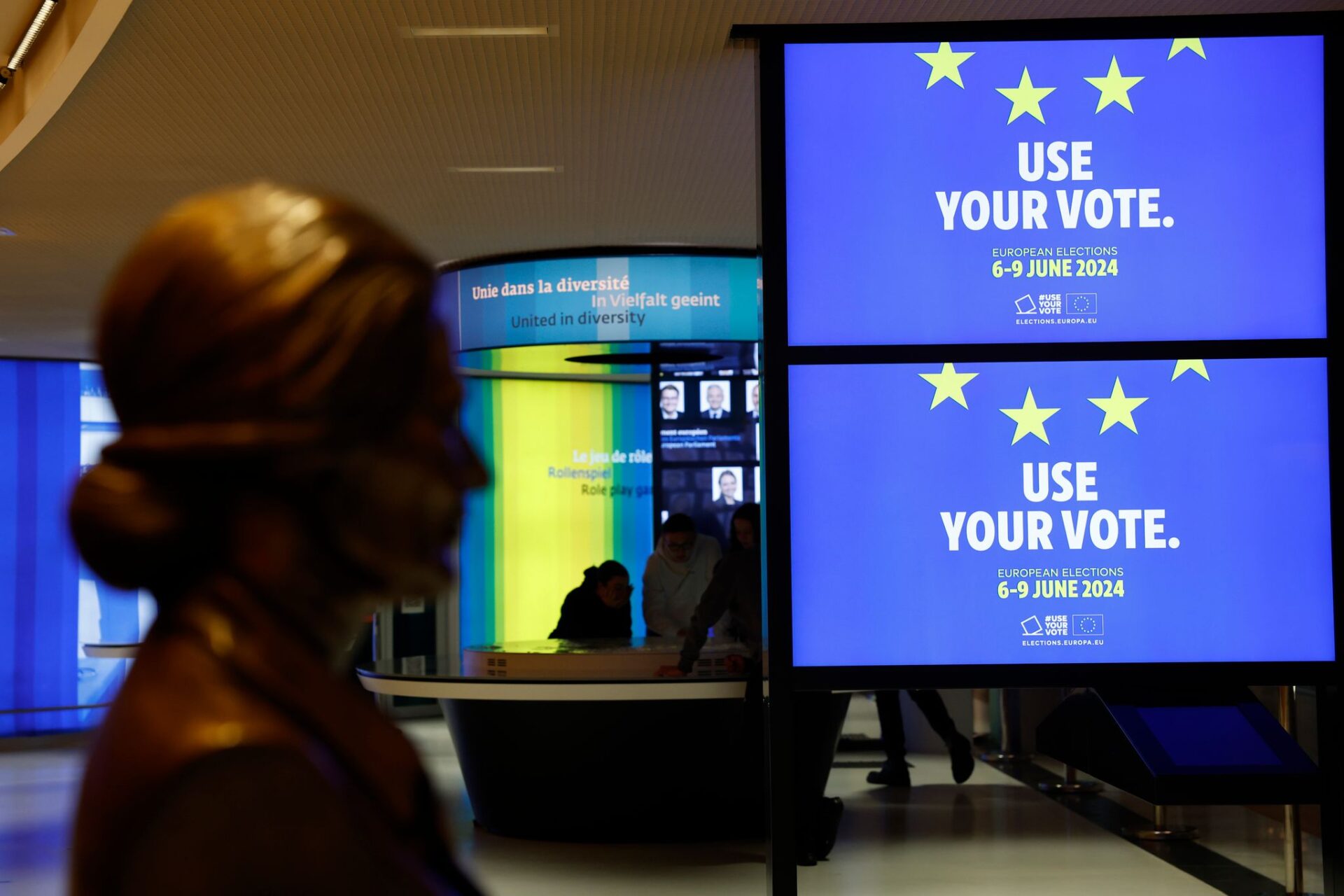Between 6 and 9 June, around 370 million Europeans are called to the polls for what promises to be the most important election in the history of the EU. Internally, however, Europe deals with interference from Moscow and the rise of sovereignist, nationalist and extremist movements that could challenge the way the EU functions.
For months, the far-right – often, but not exclusively, seen as the most critical of the EU – has been in constant growth in many EU member states, according to pre-election opinion polls.
The latest projections on the composition of the European Parliament show that the majority that supported current European Commission President Ursula von der Leyen in 2019 – the EPP, The Socialists and Democrats (S&D) and Renew Europe – will hold their ground, although with a significantly thinner margin.
Parties across Europe belonging to the Identity and Democracy (ID) group – which houses some of Europe’s far-right parties – are expected to gain voters. The group includes France’s National Rally party (RN), Belgium’s Vlaams Belang (VB), Italy’s Lega (LSP), Austria’s Freedom Party (FPÖ) and the Netherlands’ Party for Freedom (PVV), all of which are doing well in the national polls.
Until recently, the German Alternative for Germany (AfD) also sat with ID. However, as of May 23, the AfD delegation has been expelled from ID with immediate effect. Their expulsion is expected to eat into the group’s overall gains, but MEPs representing the AfD would still join the Parliament as non-attached members.
The European Conservatives and Reformists (ECR) are also expected to gain seats, due to the predicted rise of the Italian Prime Minister Giorgia Meloni’s Brothers of Italy (FdI) party.
The Greens, the Liberals in the Renew Europe group and the Socialists and Democrats may emerge diminished from the polls.
According to projections from Europe Elects in May, the Greens are at 56 seats compared to 74 in 2019 , the S&D at 138 compared to 154 in 2019 and Renew at 86 compared to 108 in 2019. The ID group is at 68 seats compared to 73 in 2019 and the ECR at 75 compared to 62 in 2019. According to the projections, the EPP remains stable at 180 seats compared to 182 in 2019. The number of non-attached MEPs – including AfD members who would otherwise have been included in the ID group – is expected to rise to 76 compared to 57 in 2019.
EU-critical parties envision a different European Union
While ‘United in diversity’ has been the Union’s motto since 2000, multiple countries – or rather right-leaning parties – have toyed with the idea of leaving the EU and have been championing more nationalist ideals, resulting in campaigns for Frexit, Dexit, Nexit, Polexit and more.
In Germany, the AfD had been doing well in the polls amid dissatisfaction with Chancellor Olaf Scholz‘s three-party coalition, but support had dropped considerably after a series of scandals – including allegations that it plans to repatriate migrants. The AfD wants to partially reverse European integration. In its view, the EU should only be an economic and interest group of loosely connected individual states.
Germany would suffer severe economic damage if it left the European Union, researchers from the German Economic Institute (IW) wrote in a report in May. An exit from the EU, the economists wrote in their analysis, “would deliberately trigger a severe economic crisis and a lasting loss of prosperity for the population in Germany.”

In France, the lead candidate for the European elections of the National Rally party, 28-year-old MEP Jordan Bardella, has become extremely popular in the country – especially among young voters. Bardella is very critical on migration and has voiced opposition to the accession of new countries to the EU, such as Ukraine. The National Rally party also advocates for restrictions on the EU’s Schengen zone.
In Spain, Vox is the only party in the European Parliament that belongs to a Eurosceptic political family – the ECR. Although Vox has always avoided defining itself as a Eurosceptic party, focusing on the defence of an EU that respects the national sovereignty of its member states, several of the party’s postulates do question some of the pillars on which the EU is based.
Vox has also adopted a very critical line with the climate and environmental policies promoted by the EU, which it blames for harming farmers and ranchers.
Internal cracks divide European groups
As the far-right has gained ground in EU member states’ national politics, the pressure on relations within groups or parties at the European level has also increased.
While the ID group also housed Germany’s Alternative for Germany (AfD), the party was expelled from the group in May following incidents involving its lead candidate for the European elections, Maximilian Krah. Krah commented that not all members of the Schutzstaffel (SS) were criminals. The SS was a major paramilitary organisation under Adolf Hitler and the Nazi Party.
Following the incident, the National Rally party (RN) was the first to explicitly announce that it would no longer cooperate with the AfD in the European Parliament.

Furthermore, in an interview with the European Newsroom in April, Renew Europe’s lead candidate, Valérie Hayer, said that she ruled out a coalition with the ECR.
Following the recent coalition agreement in the Netherlands, Hayer also announced that the country’s liberal People’s Party for Freedom and Democracy (VVD) membership of the group would be put to the vote.
The VVD entered into a four-way coalition with Geert Wilders’ far-right populist Party for Freedom (PVV) – which is part of the ID group in the European Parliament –, the centre-right New Social Contract (NSC) and the agrarian right-wing Farmer-Citizen Movement (BBB). According to Hayer, the VVD no longer belongs to the Renew group after forming a coalition with the PVV.
While the PVV is part of the ID group, it currently has no seats in the European Parliament.
This article is part of the enr’s EU Elections Spotlight: Anti-EU currents. The content is based on news by agencies participating in the enr.
